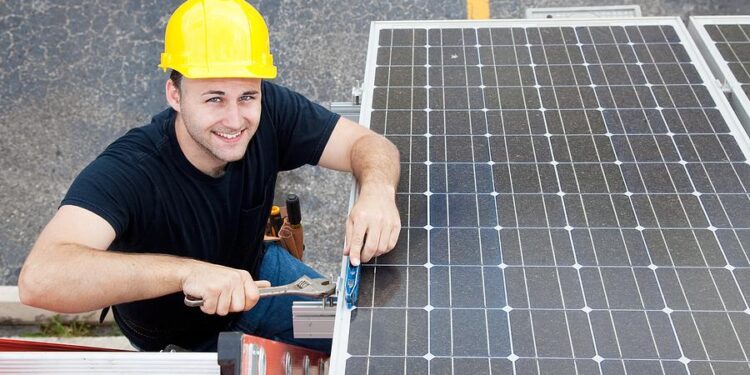A boom in rooftop solar panels in Florida is likely to continue after Gov. Ron DeSantis vetoed a bill that would have essentially barred homeowners from selling power back to utility companies.
The exponential growth in Florida’s solar industry in the last few years had caught some insurance agents off guard, forcing them to scramble to find carriers that will insure homes with solar panels. Some carriers won’t write homes with solar, even though experts have said that the panels are wind-resistant and help hold down roof shingles.
The solar systems also can be expensive to temporarily dismantle when insurers ask policyholders to replace roofs that 10 years old or older.
DeSantis said he vetoed House Bill 741, passed in March, because of its impact on the already rising cost of living for homeowners.
“Given that the United States is experiencing the worst inflation in 40 years and that customers have seen steep increases in the price of gas and groceries, as well as escalating bills, the state of Florida should not contribute to the financial crunch that our citizens are experiencing,” DeSantis said in his veto letter.
State Rep. Lawrence McClure, R-Plant City, who was one of the sponsors of the bill, said he understands the governor’s rationale.
“We’re dealing with different economic conditions here in May than we had in March,” he said, according to the Miami Herald.
Most states now allow households and businesses that produce modest amounts of power to sell it back to the grid at a set rate, a practice known as “net metering.” But utilities have become concerned about the growth of distributed solar energy on their bottom line. Some Florida lawmakers also have argued that the arrangement is unfair to electricity customers who don’t have solar power, according to news reports.
Solar power supporters have pointed out that all utility customers benefit from the large investment made by homeowners and businesses who install or lease solar on their roofs. The rooftop systems help alleviates the need for the utility to purchase or generate expensive fossil fuel-generated energy. And the solar industry in Florida has created an estimated 9,000 jobs and has sparked a significant demand for business, workers’ compensation and liability insurance for solar installation companies.
One provision in HB 741 would have allowed utilities to impose fees on customers. The measure is expected to come up again in the 2023 session of the Legislature, perhaps without that provision, lawmakers said.









